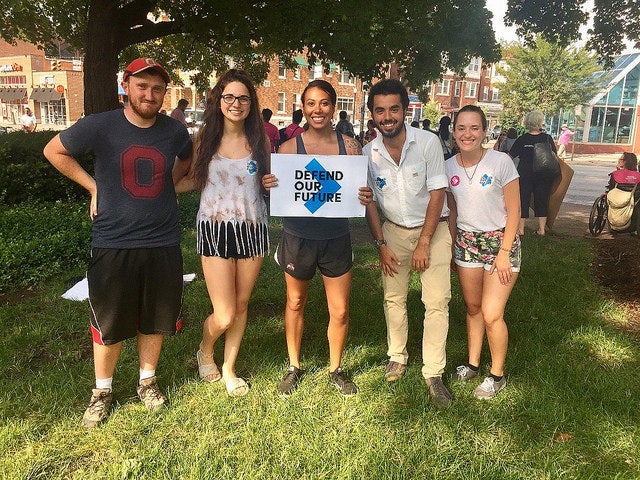Last week, Sen. Kamala Harris and Rep. Alexandria Ocasio-Cortez introduced the Climate Equity Act, legislation that addresses the gross environmental inequities faced by Black, brown and low-income communities. It’s a landmark bill, introduced by two of the most prominent leaders in Congress, that places the inherent injustice of climate change front and center.
And it’s just the latest bill that shows, for the first time in more than a decade, momentum to tackle climate change head-on, in a way that addresses the systemic inequalities that plague our society, appears to finally be picking up steam in Washington. We know – it’s hard to believe! But look at some of the things that have happened in just the last few months:
The Climate Equity Act is a real thing:
Communities of color are on the frontlines of the climate crisis, so it’s absolutely essential that those disproportionate burdens and threats are acknowledged and addressed in any emerging climate action plans coming out of Congress. And this bill does exactly that. It will help assess the impact proposed laws will have on frontline communities Crucially, it requires that representatives of impacted communities have a seat at the table at the front end of that rulemaking process.
EJ for All Act:
Just last week, Harris, along with her colleagues Sens. Tammy Duckworth and Cory Booker, introduced the Environmental Justice for All Act. Introduced by Reps. Donald McEachin and Raul Grijalva in the House, this bill would require impacted communities to be closely involved in the regulatory process early on, provide resources to research public health disparities in vulnerable communities, and more.
House Select Committee on the Climate Crisis released a comprehensive report:
Earlier this summer, Rep. Kathy Castor led the House Select Committee on the Climate Crisis in releasing a comprehensive report with dozens of excellent ideas to build a 100% clean economy. We were particularly thrilled to see the report put environmental justice front and center.
The House passed infrastructure legislation that will lead to more jobs, less pollution:
If you’re on our email list, you know that “never have we ever been this excited about infrastructure!” And you should be excited, too! The House of Representatives passed a bill earlier this year that will lead to more jobs and less air pollution, at a time when America REALLY needs both. The legislation curbs pollution from abandoned oil and gas operations that leak climate pollution, creates protections for communities that are the most vulnerable to climate impacts like extreme weather, and replaces dangerous lead pipes that make the water we drink toxic. That’s right – despite the national outcry after the Flint water crisis YEARS AGO, there are still communities across America (many of which have significant BIPOC populations) that still don’t have clean drinking water. This legislation aims to change that. And the Senate now has a chance to take the next step.
Candidates up and down the ballot are running with the environment front and center.
We’ve been writing about sitting office holders so far in this piece. But while as a 501(c)(3) we cannot participate in elections or endorse candidates (and definitely aren’t doing so here) it’s definitely worth mentioning that we’re seeing more, and bigger climate plans from candidates this year than in any other election ever. it’s encouraging to see so many people running for office recognizing what we already knew — that people want clean air, clean water, healthy communities, and a safe climate, and want to work with leaders who will make that happen.
Our country, and the world, face no shortage of crises right now. And we won’t sugarcoat it for you — we still have a long road ahead of us, and many more leaders need to join in before we see the sort of broad climate legislation passed that we need to ensure a better, safer future every one of us deserves. But for the first time in a LONG time, it feels like momentum is growing.
Keep up the pressure with your elected officials, folks. They’re listening.




